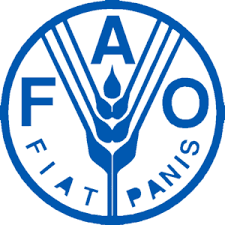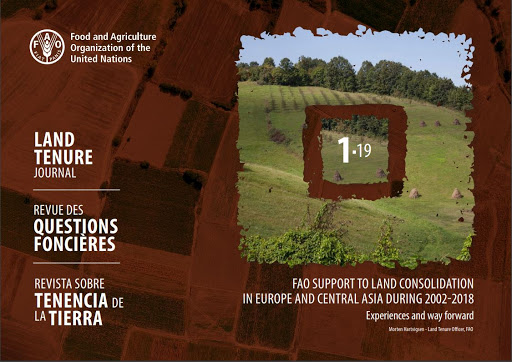Location
FAO's Journal on Land Reform, Land Settlement and Cooperatives was published between 1964 and 2009. Issues published between 1996 and 2009 are accessible below.
The successor of the Land Reform, Land Settlement and Cooperatives was launched in 2010. The new Land Tenure Journal aims to promote the latest knowledge in the technically, economically, politically and socially broad areas of land tenure.
Members:
Resources
Displaying 1 - 5 of 12Land tenure and land conflict in the South Pacific
The paper is a desk study prepared as a basis for discussion and further field research into land tenure and conflict in the region.The first section provides an overview of land tenure and land utilization issues. This section includes an analysis of gender and other demographic issues as they relate to land tenure and access to natural resources.
Land access, off - farm income and capital access in relation to the reduction of rural poverty
The current framework of economic growth and development includes a general trend towards the privatization of land rights and a collapse of collective structures in agriculture as well as a move towards reliance on land markets as the means of peasant access to participation in the development process. Despite the removal of land reform as an explicit part of the policy agenda, it is clear that the situations which led to the activation of land reforms in past decades are still in place.
Private and communal property ownership regimes in Tanzania
Tanzania’s well-known village establishment programme, which is called Ujamaa , allowed for the sedentarization of almost all rural residents in some 8 000 villages in the 1970s. The effective impact of villagization on land distribution may vary, but a general preference for individual assignments of rights has been observed in nearly all cases under study, which is at least partially due to the track record of communal production in the framework of Ujamaa . Only 6 percent of the country’s total surface is under cultivation.
After land reform, the market?
The ultimately disappointing results of past redistributive reforms caused contemporary policy-makers in Latin America to search for alternatives. In recent years, the issue of transforming tenure structure through the market mechanism has moved into the spotlight. This paper argues that it is extremely helpful to approach the topic from an institutional perspective. The institution of property rights is central to the discussion. New questions emerge: How are transactions actually being carried out in the rural setting?
Private and communal property rights in rangeland and forests in Uganda
The present land tenure situation in Uganda is essentially the result of four factors: customary tenure practices, the mailo tenure system introduced under the British colonial administration, the Land Reform Decree passed by Idi Amin’s government in 1975, and the disrupting social order under the Amin regime and during the period following its downfall. The impacts of the Land Reform Decree and civil disobedience have led to the degradation of common property resources, particularly forest areas and pastures.



